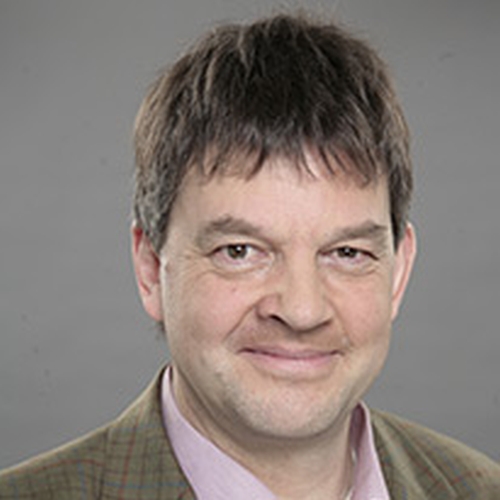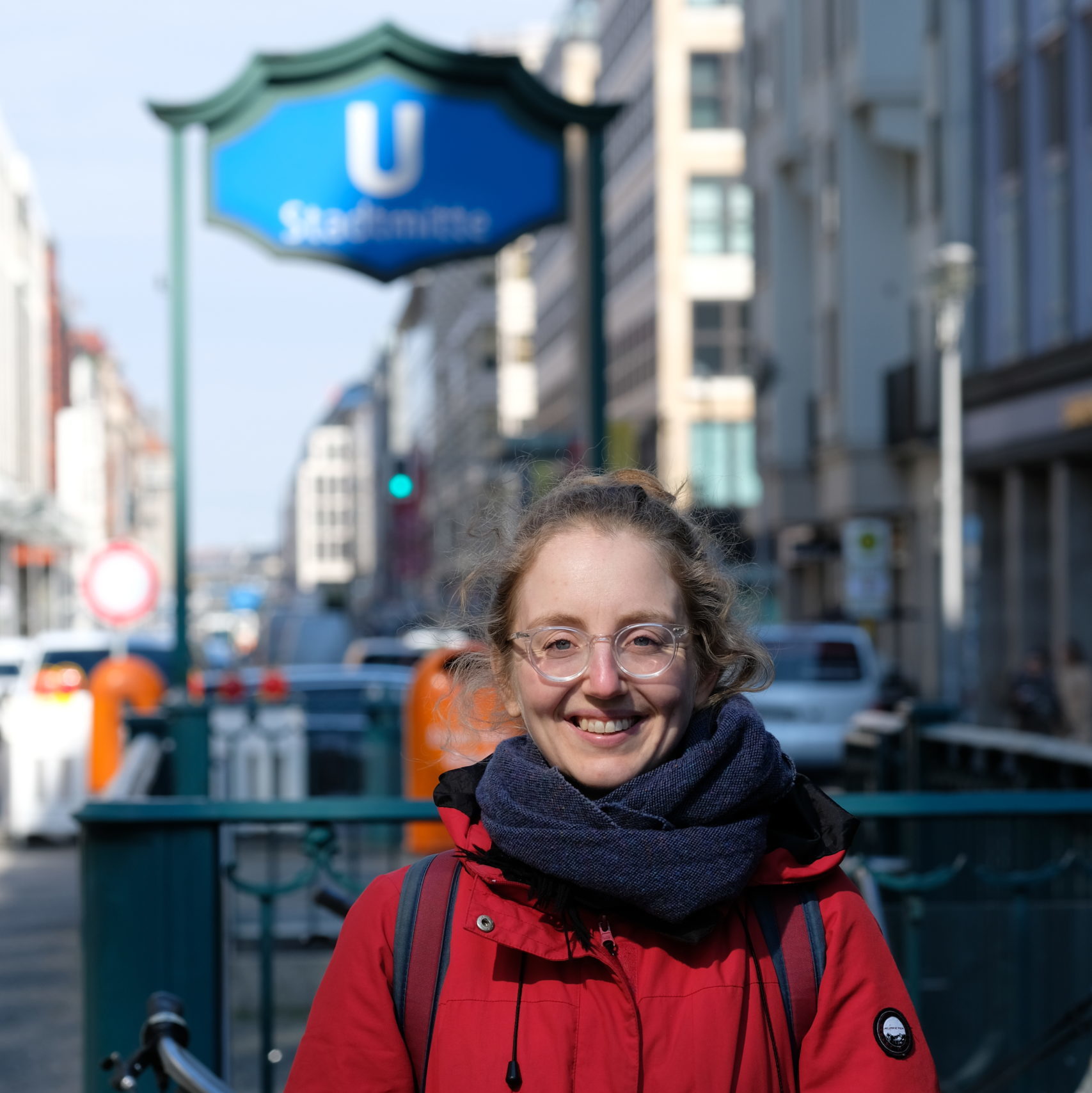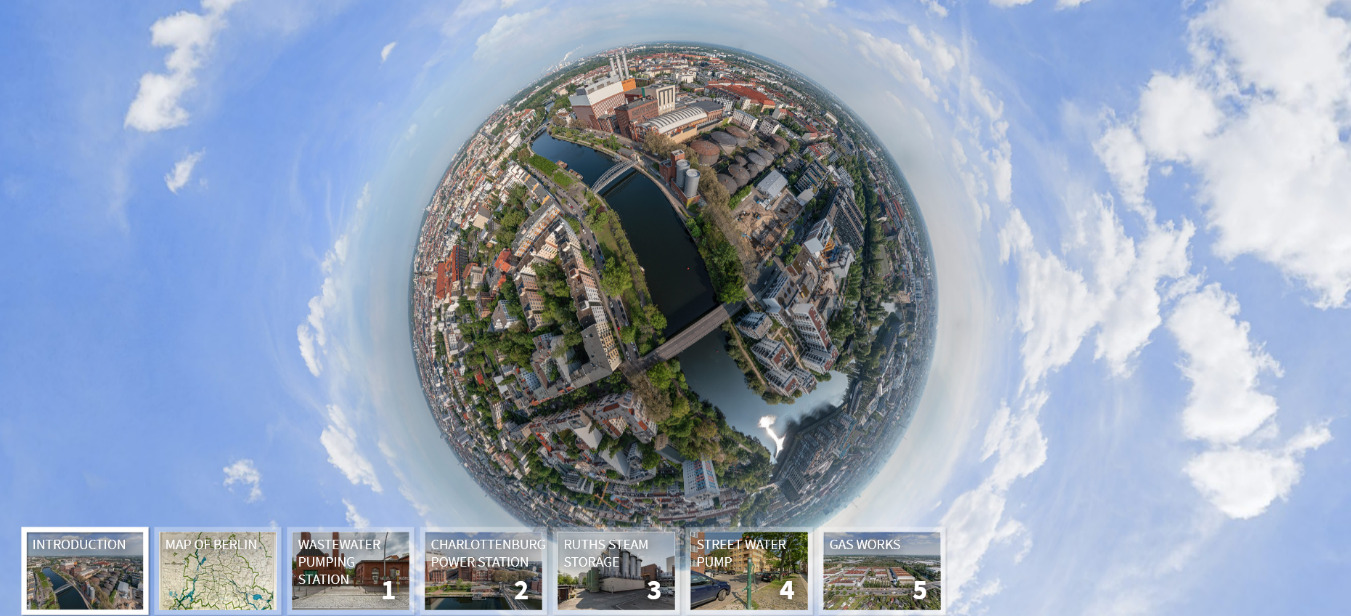Digital tour “Remaking Berlin”
Based on the book Remaking Berlin. A History of the City through Infrastructure, 1920-2020 (MIT Press, 2020) by Timothy Moss, this digital tour takes you through Berlin’s instructive infrastructure history. Click on the image below to begin a journey through space and time, exploring Berlin’s turbulent history through the lens of its energy and water infrastructures.
The digital tour along the pre-1920 border between Berlin and Charlottenburg visits key infrastructure sites, revealing their exciting histories over the past 100 years and highlighting their astonishing relevance to urban and infrastructure transformations today. And while the 360-degree photographs and dynamic aerial imagery of the city provide an incredible virtual experience, the guided commentary by Timothy Moss paints a fuller picture of the past, present and future of the city.
The tour reveals that there’s more to infrastructure than meets the eye. Beyond providing water, power, gas, and sanitation, infrastructures like these have served multiple political purposes over the past 100 years. Attention is drawn to the artefacts encountered not for their engineering or architectural significance, but as manifestations of infrastructure politics, policies and practices. It is intriguing to learn how infrastructure systems – renowned for their steadfastness – did or did not change across diverse political regimes: ranging from fascism and state socialism to various enactments of democracy. The non-linearity of infrastructure trajectories, indeed, provides encouragement to explore how infrastructures can be transformed to meet future needs.
Art and science were integrated throughout the creation and development of the digital tour through the collaboration of colleagues at IRI THESys – researcher Timothy Moss, science communicator Pauline Münch and film maker Anna Frohn Pedersen – as well as the photographers and web designers Stefan Dendorfer and Stefan Schillinger from linsenspektrum and 360 tours. Funding was provided by the Gerda Henkel Foundation and German Research Foundation. See the web page “Invisible Berlin” for more information about the book project and its outputs.
The tour was awarded the Conrad-Matschoß Prize 2023 in the category “popular science”.
Header image credit: Landesarchiv Berlin (LAB) F Rep 270, No. A 175
Contact

Timothy Moss
Urban Infrastructure Historian
Email: ">

Pauline Münch
Science Communication
Email:



